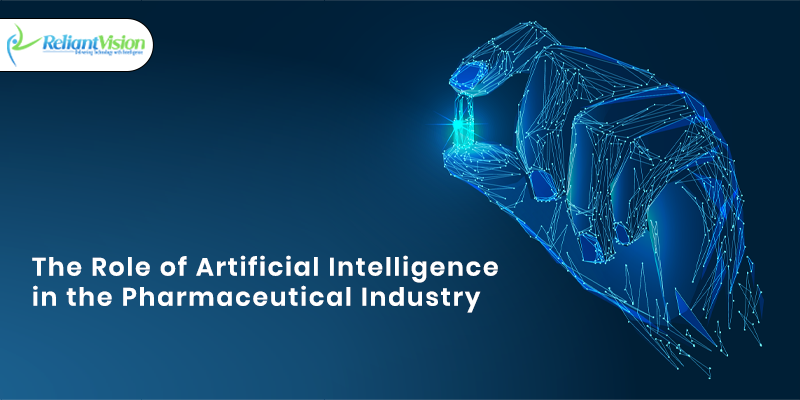Artificial Intelligence or AI is defined as the use of automated algorithms to perform tasks that traditionally rely on human intelligence. Using AI in pharmaceutical industry over the last several years has resulted in new breakthroughs.
Artificial Intelligence in the pharma and biotech industry has redefined how scientists are developing new drugs, tackling diseases and much more. The pharmaceutical industry is set to greatly benefit from the use of Artificial Intelligence due to its wide range of applications.
Pharmaceutical companies are adopting more efficient, automated processes to incorporate data driven decisions and are using predictive analytical tools. For instance – Novartis is currently using machine learning Technology to classify a digital image of cells each treated with different experimental compounds.
The machine learning algorithms collect and group compounds that have similar effects together, before passing on the clean data to researchers who can decide how to leverage these insights into their work.
Using AI for data mining and analytics is already transforming many industries including pharma and biotech companies. From the early stage drug discovery to prescribing treatment options, the use of AI is growing steadily within the biopharma industry with a projected volume in monetary terms expected to reach $10 billion by the end of 2024.
Recently, using artificial intelligence, the research team at the USC Viterbi School of Engineering has developed a method to speed up the analysis of vaccines and zero in on the best potential preventive medical therapy.
Some of the ways through which AI is being applied in the pharmaceutical industry at the present juncture include-
- Manufacturing improvements
AI when involved with the manufacturing processes can present many opportunities to improve the production processes that have already been put in place. These various management options in manufacturing procedures include-
- Quality control
- Reduced design time
- Predictive maintenance
- Reduction of wastage
- Improvement of production reuse.
AI will ensure that tasks are performed precisely andin analyzing the process to find areas where it can be streamlined. It would also help in removing any older processes that would typically rely on the need for human intervention or input thereby eliminating any room for human errors.
- AI in marketing
The pharmaceutical industry is a sales driven sector and as such, AI is becoming more useful in refining the style of marketing and strategies that businesses use. Pharmaceutical companies by using AI can chart the common customer journey thereby allowing them to in identifying the direct marketing technique the customer was subject to and finally persuade them to make a purchase decision.
- Drug discovery and design
Artificial Intelligence is playing a key role in drug target identification and validation. Pharmaceutical companies are using the potential of AI during drug trials to reduce the time it takes a drug to get approval and reach the market.
This can result in huge savings in cost that could mean lower cost of drugs for patients as well as more treatment choices. Recently, researchers by using AI-assisted method have predicted 26 potential vaccines that would work against the corona virus.
- Processing biomedical and clinical data
The most developed use of AI in the pharmaceutical/life science industry is using Artificial Intelligence to examine the enormous amount of data from the growing volume of research publications to validate or discard hypotheses.
AI is being used to interpret everything from handwritten notes and test results to environmental factors and imaging scans into usable formats for analysis. AI is being used to develop personalized drug treatment based on a patient’s test results, reaction to drugs and historical patient data for drug reactions.
SummaryOverall,it can be concluded that AI has the capability and capacity to be the next big thing in the pharmaceutical industry. The pharmaceutical industry adopting AI will have a strategic advantage in promoting a far better health experience for those who need it.

